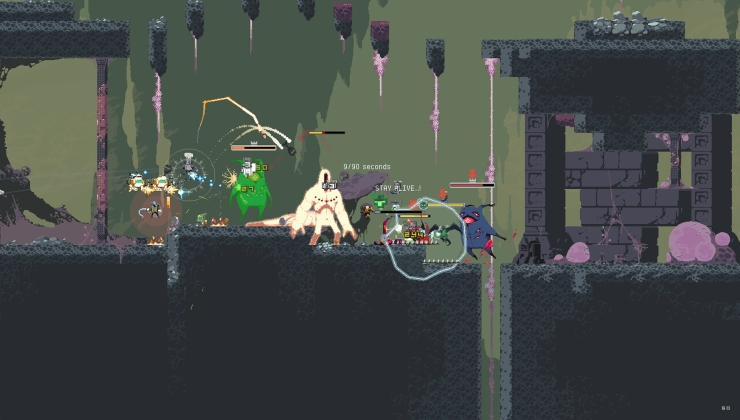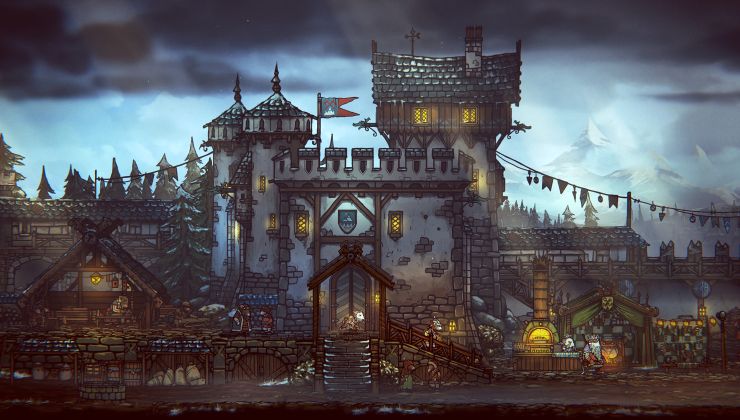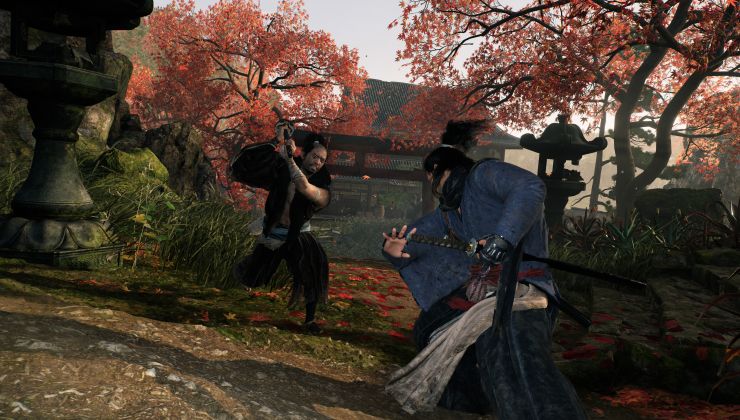It seems Canonical have done a bit of a U-turn on dropping 32bit support for Ubuntu, as many expected they would do. Their official statement is now out for those interested.
The most important part to be aware of is their new plan:
Thanks to the huge amount of feedback this weekend from gamers, Ubuntu Studio, and the WINE community, we will change our plan and build selected 32-bit i386 packages for Ubuntu 19.10 and 20.04 LTS.
We will put in place a community process to determine which 32-bit packages are needed to support legacy software, and can add to that list post-release if we miss something that is needed.
That's not the end of it though of course, eventually 32bit will be dropped which is inevitable really. Just not fully this time. Touching on this, they said in the post about using "container technology" to address "the ultimate end of life of 32-bit libraries" so hopefully by that time everything they need will be in place to make it super easy for users.
I'm glad Canonical have seen some sense on this, they clearly didn't communicate it well enough to begin with but they at least understand when they've made a big mistake like this and owning up to failures is part of what builds trust, so I'm happier now. Next time this happens, I just hope they give a very clear roadmap giving everyone proper time to prepare, which they didn't this time.
Their full statement is here. It will be interesting to see how Valve react, after announcing an end of Ubuntu support for Steam for Ubuntu 19.10 onwards.
Given that part of the reason for dropping support for 32-bit libraries is the effort required to perform QA, would it be worth running a fundraiser so those who care about continued multiarch support can contribute towards a solution? Would Canonical be open to such a solution - it seems a better use of the community's time and effort than the angst out there at the moment...When will you see the general picture? Ubuntu is reducing it's investments in the non-AI and non-IoT space since 2015 (or maybe much earlier). And it's very easy to find the reasons:
[Canonical plans to raise its first outside funding as it looks to a future IPO](https://techcrunch.com/2018/11/15/canonical-plans-to-raise-its-first-outside-funding-as-it-looks-to-a-future-ipo/) "Throughout the years, Shuttleworth self-funded the project and never showed much interest in taking outside money. Now, however, that’s changing."
[Mark Shuttleworth sees increased demand for enterprise Ubuntu Linux desktop](https://www.zdnet.com/article/mark-shuttleworth-sees-increased-demand-for-enterprise-ubuntu-linux-desktop/) "We have seen companies signing up for Linux desktop support, because they want to have fleets of Ubuntu desktop for their artificial intelligence engineers. We're starting actually now to commercially support the desktop in a way that we've never been asked to before," he said.
[Canonical updates Ubuntu Core OS for IoT devices](https://siliconangle.com/2019/01/22/canonical-updates-ubuntu-core-os-iot-devices/) "Canonical’s announcement is important because although the battle for desktop and smartphone OS dominance has already been decided, it’s still pretty much wide open in the case of IoT, said Holger Mueller, principal analyst and vice president of Constellation Research Inc."
Why are you trying to keep Ubuntu alive for your own use case when their CEO and their team want to neglect your preferences and instead focus on IoT and AI?
So Ubuntu seeing more money in IoT and AI and thus want to put some focus into those areas are now them neglecting our preferences? Seriously, what is it with this whole distro-wars thing where people who use/like another distro just have to throw all kinds of shit at everyone else?
Could it be so simple as they actually thought that no one used 32-bit applications anymore since they saw the downloads of thsoe packages dropping off since 2015? No of course it has to be some grand evil plan where they want to remove everything that isn't IoT or AI...
I am eagerly waiting for the Steam announcement for a supported distro.
Me too, hermano, me too.
After the Ubuntu 18.04 LTS release we had extensive threads on the ubuntu-devel list and also consulted Valve in detail on the topic.
I don't see how this statement could be true, and yet shortly after Canonical's announcement a representative from Valve stated that they would be seeking a new Linux distribution.
Maybe a left hand/right hand problem.After the Ubuntu 18.04 LTS release we had extensive threads on the ubuntu-devel list and also consulted Valve in detail on the topic.
I don't see how this statement could be true, and yet shortly after Canonical's announcement a representative from Valve stated that they would be seeking a new Linux distribution.
Possible that neither Valve's nor Canonical's hands properly talked with each other.
This all really does scream "COMMUNICATION ISSUES - collapsing empires since ancient Rome".
Last edited by TheSHEEEP on 25 Jun 2019 at 1:59 pm UTC
I think that what you have seen from the outside is Canonical going from having endless funds (from Shuttleworths selling of Twathe) to having those funds being dried up and having to earn actual income in order to stay alive.
I still believe that they have an interest in being a good linux distro, their users and the desktop. Just that they also try to cut everything unnecessary in order to keep the cost down as much as possible and this time they made the wrong decision that they thought that no one was using 32-bit software.
I myself stopped building 32-bit versions of our software back in 2016 when that first announcement came on ubuntu-dev and have not received a single request for it since then so I do think that it's an easy assumption to do unless you are deep into games and Wine.
About the "postponed" bit we don't really know about that either, earlier they where to abandon it altogether so in time they might come to the conclusion that they cannot postpone it either.
Indeed, it is not Shuttleworth's responsibility to indefinitely support what has enough popularity to be an entirely community maintained and funded operation, that's how he see's it, how you see it, how I see it, certainly.
IMO Valve should be the one funding the 32-bit support effort, they have the most at stake there, they have vast wealth to draw from and the motivation to gather the required resources. There perhaps ought to be a choice upon installation of Ubuntu whether to include legacy gaming support - Valve's official container (flatpak, Snap) or their official PPA, therein residing not only Steam but also all the maintained legacy 32-bit libraries at the heart of this whole imbroglio.
Valve has expended quite a huge effort toward improving gaming on linux. The client, the Steam machine efforts, Vulkan contributions, consultation and conferences with devs, and now proton. It is a huge effort, they must have easily spent millions on this. They prove their recent continued investment with proton - they have made the biggest investments of time and resources, I await their next move. IMO they should support Canonical and form an agreement to handle the 32-bit stuff going forward.
Spoiler alert: The end of the world is not happening today. The mankind should rejoice!
Honestly it's actually quite amusing.
Last edited by bolokanar on 25 Jun 2019 at 2:19 pm UTC
I think that what you have seen from the outside is Canonical going from having endless funds (from Shuttleworths selling of Twathe) to having those funds being dried up and having to earn actual income in order to stay alive.
I still believe that they have an interest in being a good linux distro, their users and the desktop. Just that they also try to cut everything unnecessary in order to keep the cost down as much as possible and this time they made the wrong decision that they thought that no one was using 32-bit software.
I myself stopped building 32-bit versions of our software back in 2016 when that first announcement came on ubuntu-dev and have not received a single request for it since then so I do think that it's an easy assumption to do unless you are deep into games and Wine.
About the "postponed" bit we don't really know about that either, earlier they where to abandon it altogether so in time they might come to the conclusion that they cannot postpone it either.
Indeed, it is not Shuttleworth's responsibility to indefinitely support what has enough popularity to be an entirely community maintained and funded operation, that's how he see's it, how you see it, how I see it, certainly.
IMO Valve should be the one funding the 32-bit support effort, they have the most at stake there, they have vast wealth to draw from and the motivation to gather the required resources. There perhaps ought to be a choice upon installation of Ubuntu whether to include legacy gaming support - Valve's official container (flatpak, Snap) or their official PPA, therein residing not only Steam but also all the maintained legacy 32-bit libraries at the heart of this whole imbroglio.
Valve has expended quite a huge effort toward improving gaming on linux. The client, the Steam machine efforts, Vulkan contributions, consultation and conferences with devs, and now proton. It is a huge effort, they must have easily spent millions on this. They prove their recent continued investment with proton - they have made the biggest investments of time and resources, I await their next move. IMO they should support Canonical and form an agreement to handle the 32-bit stuff going forward.
I do think however that it's in Ubuntu:s best interest to keep the 32-bit libs, if they loose too many users due to this then they risk becoming irrelevant which will impact them in the areas where they do make a living.
It's a personal thing.Ubuntu has always had the goal of being an easy to use, easy to maintain Linux distro that "just works", and to that end, they have greatly succeeded, and most people who use Ubuntu and its variants don't know or care about the behind-the-scenes politics.
Feel free to hate me for this, but I never liked Ubuntu being considered *THE* desktop Linux distribution - long before the Mir and Unity troubles, btw.
With the latest move(s) I had high hopes that this might finally change in favour of sth. better.
I suppose the question is, what other distros offer Ubuntu's "it just works" ease of use but without the "political" downsides?
Last edited by Mountain Man on 25 Jun 2019 at 2:39 pm UTC
Thousands of studies link low-level wireless radio frequency radiation exposures to a long list of adverse biological effects, including: [...]
No (or that "thousands of studies" are not peer-reviewed and published in very low quality publications that can accept studies with poor methodology). You will find a good (and recent) summary of the state of the art [here](https://skeptoid.com/episodes/4677) with a curated bibliography on this subject. :)
So Ubuntu seeing more money in IoT and AI and thus want to put some focus into those areas are now them neglecting our preferences? Seriously, what is it with this whole distro-wars thing where people who use/like another distro just have to throw all kinds of shit at everyone else?
Could it be so simple as they actually thought that no one used 32-bit applications anymore since they saw the downloads of thsoe packages dropping off since 2015? No of course it has to be some grand evil plan where they want to remove everything that isn't IoT or AI...
You have many assumptions but they are mostly incorrect. I respect Ubuntu and I didn't throw all kinds of shit at everyone else. I started on Ubuntu 10.10 and I saw the many questionable decisions that they made since 2010.
It's also undeniable that they are focusing more on IoT recently. We live in a world where people want more. 5G, and the Internet of Things (IoT) that goes with it, promises to give us more.
5G and IoT promises to connect us in our homes, schools, workplaces, cities, parks and open spaces to over a trillion objects around the world. It promises cars that drive themselves, washing machines that order their own washing powder and softener plus of course super fast downloads and streaming.
And because I want to help humanity and Ubuntu users I will give you some additional IoT sector facts.
The USA is currently leading the way on 5G. At the June 2016 press conference where the Federal Communications Commission’s (FCC) head Tom Wheeler announced the opening up of low, mid and high spectrum’s. There was no mention of health effects whatsoever. But the dangers are real.
Thousands of studies link low-level wireless radio frequency radiation exposures to a long list of adverse biological effects, including:
DNA single and double strand breaks
oxidative damage
disruption of cell metabolism
increased blood brain barrier permeability
melatonin reduction
disruption to brain glucose metabolism
generation of stress proteins
a denser soup of electrosmog
effects on the skin
effects on the eyes
effects on the heart
immune system effects
effects on bacteria resistance
effects on plant health
effects on the atmosphere and depletion of fossil fuels
disruption of the natural ecosystem
That is just a long list of unsubstantiated pseudoscience that have no basis in reality. And if you do find some real studies in that long list of yours I can guarantee right now that they are studying energies that are extremely more powerful than was is used in wireless communications.
We've had cellphones and wireless networks for 36 years and still there is not a single case of increasing cancer rates or other deceases that the cranks are connecting to radio frequencies.
Fun fact is that the number of "EM-sensitive" people have decreased by a large margin since Facebook and Instagram became popular. Strange isn't it. Another fun fact is that to date there has not been a single "EM-sensitive" person that have been able to determine if they have been exposed or not to EM-radiation when the tests are blinded, imagine why...
No (or that "thousands of studies" are not peer-reviewed and published in very low quality publications that can accept studies with poor methodology). You will find a good (and recent) summary of the state of the art [here](https://skeptoid.com/episodes/4677) with a curated bibliography on this subject. :)
The base claim, "Heat is the only influence radio can have on a body", is disputed. I could give you a Geman source if it helps you.
PS: And the following is a red flag of non-science: "Claims of harm from cell phone use — not just 5G, but all cell phones — should also be red flagged because they are tirelessly promoted by the Environmental Working Group". Truth never depends on whichever group agrees or disagrees.
Last edited by Eike on 25 Jun 2019 at 4:13 pm UTC
Even tinfoil hat wearers won't have everything in their lives wrong.Of course not!
Their brains are not yet rotting away from cellphone radiation! Duh!
Even tinfoil hat wearers won't have everything in their lives wrong.Of course not!
Their brains are not yet rotting away from cellphone radiation! Duh!
If my words are missunderstandable:
When they use an alarm clock to wake up in the morning, this doesn't make alarm clocks wrong. (I'll remove that so people won't be distracted.)
Last edited by Eike on 25 Jun 2019 at 4:14 pm UTC
The base claim, "Heat is the only influence radio can have on a body", is disputed. I could give you a Geman source if it helps you.
I know that there is studies that investigate potential effects at cell level and have shown potential pathways... but on that subject only epidemiological studies on large population are relevant (knowing that there is a potential way for an effect means nothing if this effect do not exist in the population... we are using cellphones etc. since at least 20 years so we don't lack data in this field). Such studies (large population with statistically relevant results) simply do not exist for now...
(You know that my German is even far poorer that my English? I'm probably just able to get a bier in a pub and I just remember the first half of Die Lorelei by Heinrich Heine... which is probably not that bad when I think about it! ^_^)
PS: And the following is a red flag of non-science: "Claims of harm from cell phone use — not just 5G, but all cell phones — should also be red flagged because they are tirelessly promoted by the Environmental Working Group". Truth never depends on whichever group agrees or disagrees.
No sorry. The "red flag" here is not that one should discard those claims blindly, but that one should be very careful when reading facts from a source that is known to give bad information (they may be wrong or right, but one should be more cautious with such sources). :)
Btw, I'm not sure where we are herding this discussion that is far from the original topic of the post, and it's difficult for me to have such discussion in English so I should probably stop here (sorry for any mistake in my comment, I can assure you that no baker has been harmed during the operations). :P
Last edited by riusma on 25 Jun 2019 at 5:02 pm UTC
Given that part of the reason for dropping support for 32-bit libraries is the effort required to perform QA, would it be worth running a fundraiser so those who care about continued multiarch support can contribute towards a solution? Would Canonical be open to such a solution - it seems a better use of the community's time and effort than the angst out there at the moment...The angst out there at the moment got them to partially change their mind in just a couple of days, and that's just so far. Seems like a good use of time to me.
Are we talking about two different things again? Many thousands sounds rather like you're talking about releasing the whole distro on 32-bit, so as to be usable on 32-bit hardware. But after this many pages of discussion, I thought it was rather clear that's not what we're talking about and not something most people had a problem with.I can see why they want to remove 32 bit libs because it's a ton of work.But a ton of work for whom? They still get the majority of their packages directly from Debian, throwing a patch on one or the other package and just compile. If Debian still supports newer versions of 32 bit libraries, how much work is there really to be done for canonical?
How much work is it to deal with many many thousands of packages and actually make a new release every 6 months? If I need to explain to you why there is a lot of work to do this the conversation is kinda already over I'm sad to say. Sure they get packages from Debian. There is a lot of work maintaining and supporting them as a whole. If you don't think keeping 32 bit is a lot of work I think you're somewhat out of touch. Sure, it's easier than if they had to make every single package themselves, but that doesn't mean it's not complex to keep everything working smoothly and supporting it.
Do all the 32-bit games etc. really depend on thousands of libraries? I'm prepared to be told yes, it just seems kind of odd.
That's fine, you can be out. Just how many 32 bit apps do you run on your machine? I run one, steam.
I guess you are not a gamer and not in this topic then. A lot of older games are 32-bit, especially Wine use case. I'd say any game older than from 2015 - is very likely 32-bit. That's a lot of games! So Steam client itself is pretty much irrelevant in comparison with sheer amount of 32-bit games.
But they are keeping the 32 bit stuff that makes everything work currently. They don't make older games anymore.
As I understand, the problem is more than just the legacy games; If it were just an issue of legacy 32bit native applications, frozen library versions might suffice – though I'm not adept enough with Linux to check that statement.
The major issue seems to be that Wine/Proton need 32bit libraries to provide compatibility with Windows software, and they need updated versions of those libraries in order to continue to improve:
(https://discourse.ubuntu.com/t/intel-32bit-packages-on-ubuntu-from-19-10-onwards/11263/121)]
[Wine heavily relies on i386. Not only for legacy 32-bit software, but also “almost all” 64-bit software uses a 32-bit installer.[1] “It’s practically impossible to implement 32-bit on top of 64-bit”, so that you wouldn’t need i386 at all.[2]. So although Wine will still be available in the Ubuntu archive on amd64, it’ll be basically useless.
To support current features in new Wine releases you need recent versions of a few libraries (e.g. faudio, vulkan-loader and vkd3d, and those require other recent stuff like sdl2, …).[3] If you use our Debian packages also current versions of unicode-data and khronos-api. 18.04 is already too old to fully support current Wine with (all) current features. [...]](https://discourse.ubuntu.com/t/intel-32bit-packages-on-ubuntu-from-19-10-onwards/11263/121)
To be that sounds like a case of "mutually unclear communication". Valve or Wine-devs could have commented then, but it is easy to miss semi-internal communication or its sigificance, when no official inquiries are made. If important parties don't comment, you can't just assume they have read and understood your plans, yet if you never assume implicit agreement, you'd never get anything done.











 How to set, change and reset your SteamOS / Steam Deck desktop sudo password
How to set, change and reset your SteamOS / Steam Deck desktop sudo password How to set up Decky Loader on Steam Deck / SteamOS for easy plugins
How to set up Decky Loader on Steam Deck / SteamOS for easy plugins
See more from me